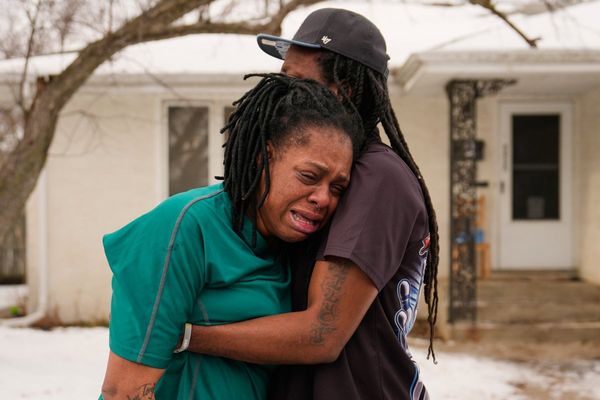
Funerals are meant to be a time of remembrance, healing, and closure. But what happens when the presence of a certain family member threatens to turn a solemn occasion into a source of stress, conflict, or even trauma? While the idea of banning a family member from a funeral might sound extreme, there are situations where it’s not only justified but necessary for the well-being of everyone involved. If you’re facing this difficult decision, you’re not alone. Many families struggle with the question of whether to exclude someone from such an important event. In this article, we’ll explore ten compelling reasons why you might need to ban a family member from the funeral, offering practical advice and real-world insight to help you navigate this sensitive issue.
1. History of Violence or Threats
If a family member has a documented history of violence or has made threats against others, their presence at the funeral can put everyone at risk. Funerals are emotionally charged events, and the last thing anyone needs is the fear of physical altercations or outbursts. In these cases, prioritizing the safety of all attendees is paramount. Setting boundaries with violent individuals is crucial for personal safety and peace of mind.
2. Ongoing Legal Disputes
Funerals can become battlegrounds when there are unresolved legal disputes, such as inheritance battles or custody issues. If a family member is involved in ongoing litigation with the deceased’s estate or other relatives, their attendance could escalate tensions and disrupt the service. Sometimes, it’s best to separate legal matters and mourning to allow everyone the space to grieve without added stress.
3. Substance Abuse Issues
A family member struggling with substance abuse may not be able to control their behavior in a high-stress environment like a funeral. The risk of disruptive actions, inappropriate comments, or even dangerous situations increases significantly. Protecting the dignity of the event and the comfort of other mourners may require making the tough call to exclude someone who is actively struggling with addiction. The Substance Abuse and Mental Health Services Administration (SAMHSA) offers resources for families dealing with these challenges.
4. History of Abusive Behavior Toward the Deceased
If a family member was abusive—physically, emotionally, or financially—toward the deceased, their presence at the funeral can be deeply hurtful to those who loved and supported the person who has passed. Allowing an abuser to attend can feel like a betrayal of the memory of the deceased and may retraumatize survivors. In these cases, banning the individual is an act of protection and respect.
5. Disruptive or Attention-Seeking Behavior
Some people have a pattern of making every event about themselves, even at funerals. If a family member is known for causing scenes, making inappropriate remarks, or otherwise drawing attention away from the purpose of the gathering, it may be wise to ask them not to attend. Funerals should focus on honoring the deceased, not managing unnecessary drama.
6. Estrangement and No Relationship with the Deceased
If a family member was estranged from the deceased for many years and had no meaningful relationship, their attendance might feel disingenuous or even disrespectful to those who were close. Sometimes, people attend funerals out of obligation or curiosity rather than genuine grief. In these cases, it’s reasonable to question whether their presence is appropriate or necessary.
7. Risk of Triggering Trauma for Other Mourners
For some attendees, the presence of a particular family member can trigger painful memories or trauma, especially if there’s a history of abuse or conflict. Protecting the mental health of vulnerable mourners should be a top priority. If someone’s attendance would cause significant distress to others, it’s worth considering a ban for the sake of collective healing.
8. Repeated Violations of Boundaries
If you’ve set clear boundaries with a family member in the past and they’ve repeatedly ignored or violated them, it’s a strong indicator that they may not respect the solemnity of the funeral. Consistent boundary violations show a lack of respect for your wishes and the needs of the grieving family. Sometimes, enforcing a ban is the only way to uphold those boundaries.
9. Potential for Legal or Criminal Issues
In rare cases, a family member may be under investigation or have outstanding legal issues that could bring unwanted attention or even law enforcement to the funeral. This can create an uncomfortable or unsafe environment for everyone present. Protecting the privacy and dignity of the event may require excluding individuals whose legal troubles could overshadow the service.
10. Protecting the Deceased’s Final Wishes
Ultimately, the wishes of the deceased should be honored above all else. If they explicitly requested that a certain person not attend their funeral, it’s important to respect that decision. Upholding their final wishes is a way to show love and loyalty, even in the face of family pressure or controversy.
Choosing Peace Over Obligation
Deciding to ban a family member from a funeral is never easy, but sometimes it’s the most compassionate choice for everyone involved. Funerals are about honoring the life of the deceased and supporting those left behind. When the presence of a particular individual threatens to disrupt that process, choosing peace over obligation is an act of courage and care. Remember, you have the right to create a safe, respectful space for mourning, even if it means making difficult decisions about who can attend.
What are your thoughts on banning a family member from a funeral? Have you ever faced this situation? Share your experiences or opinions in the comments below.
Read More
Who Pays? The Shocking Truth About Medical Bills After Death
7 Surprising Ways Family Members Can Be Cut Out of an Inheritance
The post 10 Reasons You Should Ban A Family Member from the Funeral appeared first on The Free Financial Advisor.







